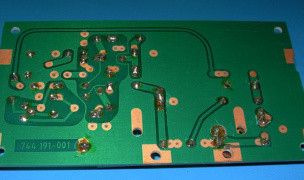 7 Terms
7 TermsHome > Industry/Domain > Materials science > Corrosion engineering
Corrosion engineering
The process of applying engineering science in the design and manufacturing of materials, structures and devices to manage and control corrosion.
Industry: Materials science
Add a new termContributors in Corrosion engineering
Corrosion engineering
neutron embrittlement
Materials science; Corrosion engineering
Embrittlement resulting from bombardment with neutrons, usually encountered in metals that have been exposed to a neutron flux in the core of a reactor. In steels, neutron embrittlement is evidenced ...
nitriding
Materials science; Corrosion engineering
Introducing nitrogen into the surface layer of a solid ferrous alloy by holding at a suitable temperature (below Ac1 for ferritic steels) in contact with a nitrogenous material, usually ammonia or ...
noble
Materials science; Corrosion engineering
The positive direction of electrode potential, thus resembling noble metals such as gold and platinum.
noble metal
Materials science; Corrosion engineering
(1) A metal whose potential is highly positive relative to the hydrogen electrode. (2) A metal with marked resistance to chemical reaction, particularly to oxidation and to evolution by inorganic ...
noble potential
Materials science; Corrosion engineering
A potential more cathodic (positive) than the standard hydrogen potential.
normalizing
Materials science; Corrosion engineering
Heating a ferrous alloy to a suitable temperature above the transformation range and then cooling in air to a temperature substantially below the transformation range.
normal solution
Materials science; Corrosion engineering
An aqueous solution containing one gram equivalent of the active reagent in 1L of the solution.

